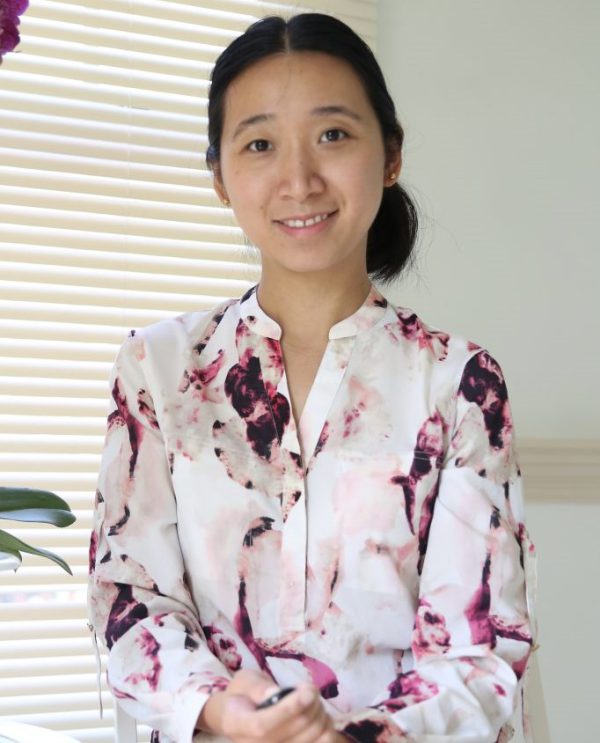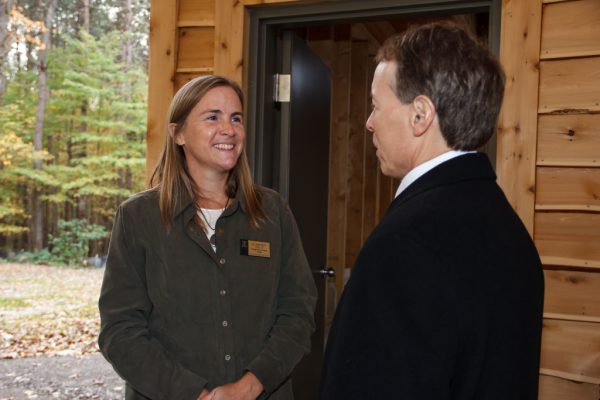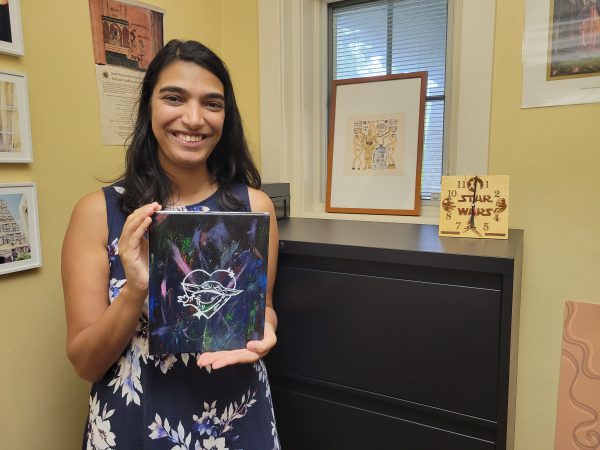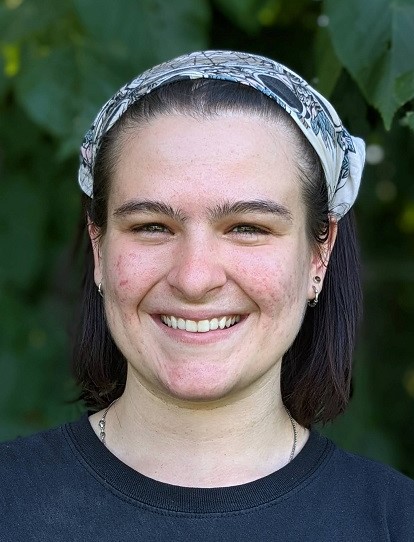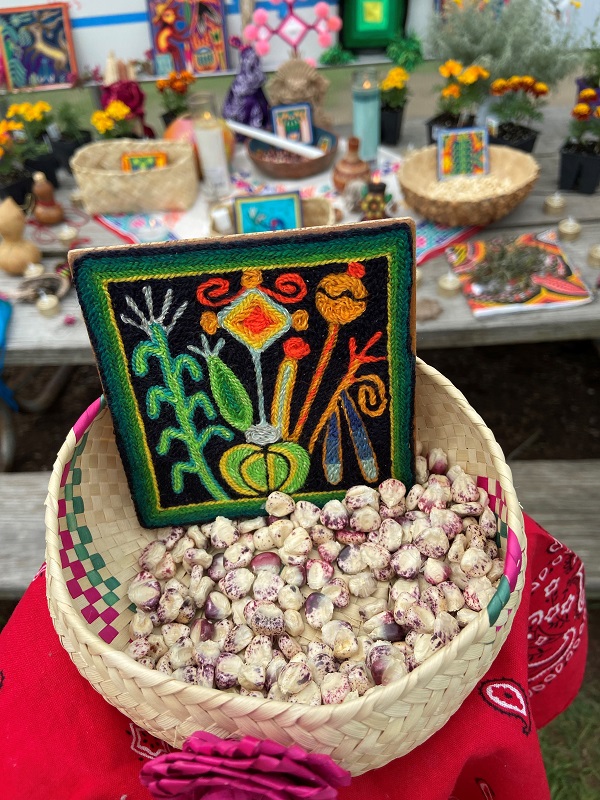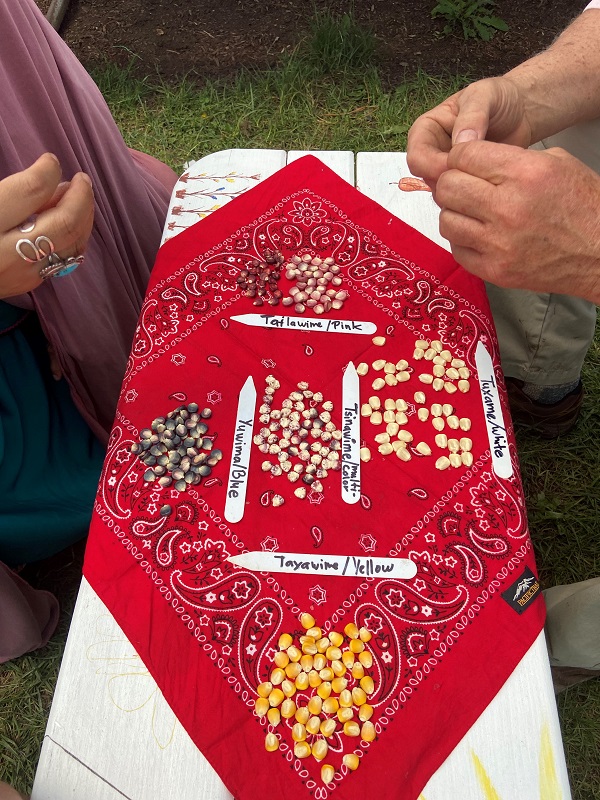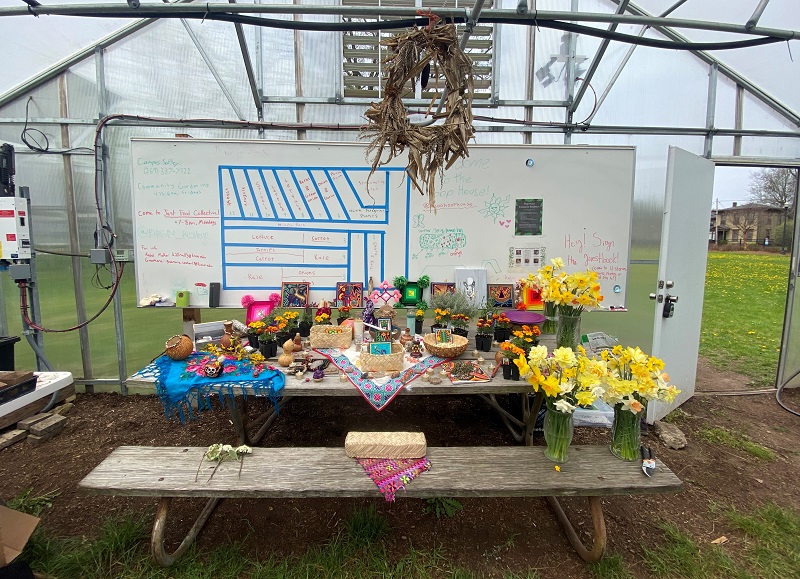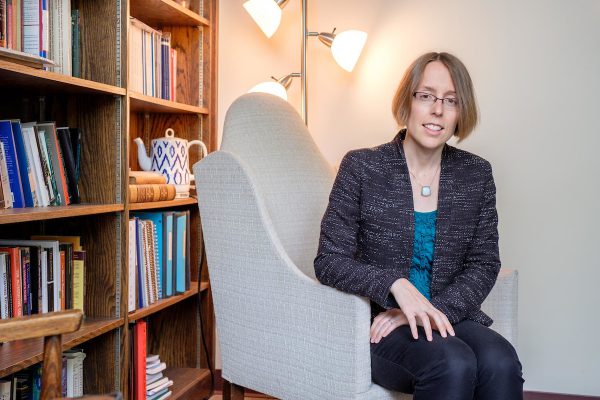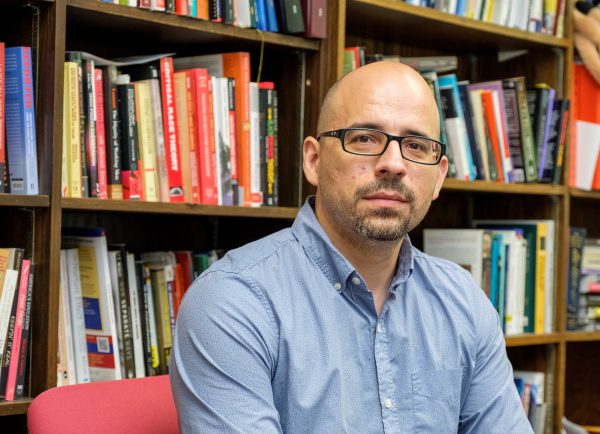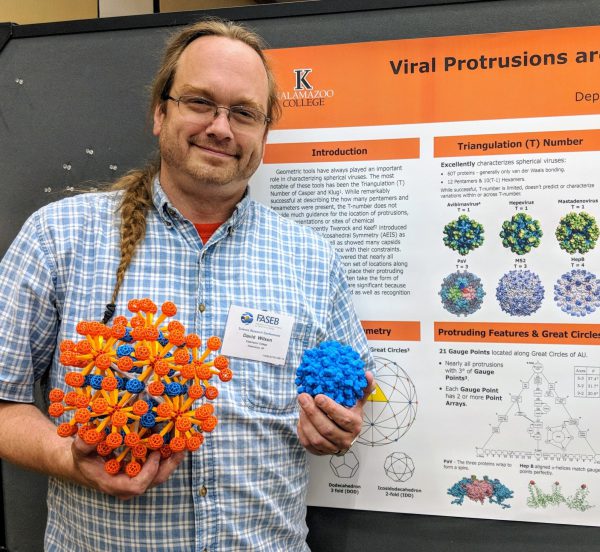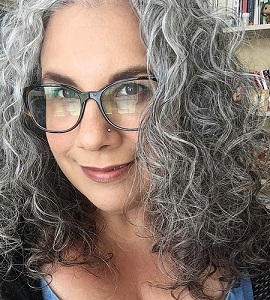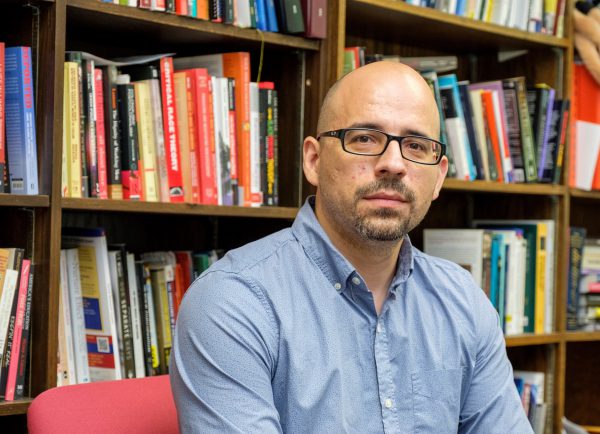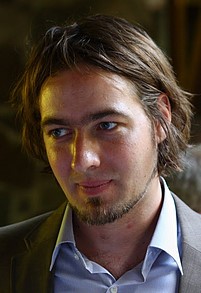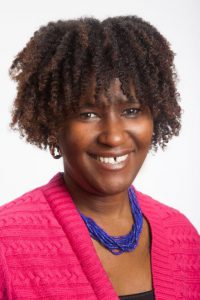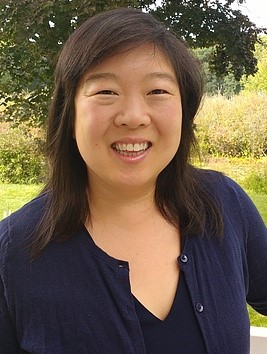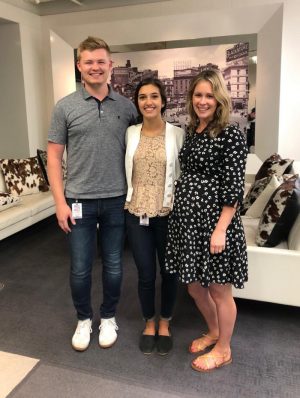Kalamazoo College is pleased to welcome the following faculty members to campus this fall:
Visiting Assistant Professor of Chemistry Kelsey Aldrich
Aldrich arrives at K from Duquesne University, where she earned a Ph.D. and served as a graduate teaching assistant in biochemistry. Her educational background also includes a Bachelor of Science in chemistry with American Chemical Society (ACS) certification from Grove City College, where she was an undergraduate teaching assistant in organic, analytical and general chemistry.
Aldrich will teach a Shared Passages Seminar course this fall titled Cultured: The History and Science of Fermented Foods. In winter spring terms, she will teach classes in general chemistry and biochemistry. Her professional affiliations include membership in the ACS and the American Society for Biochemistry and Molecular Biology (ASBMB).

Visiting Assistant Professor of English Erika Carbonara
Carbonara recently earned her Ph.D. in English from Wayne State University. She additionally holds a master’s degree from Oakland University and a bachelor’s degree with university honors from Wayne State.
She specializes in early modern literature with an emphasis on gender, sexuality, and kink studies. In her previous teaching positions, she has taught a wide range of courses from introductory composition to literature classes focused on Renaissance literature, children’s literature, and women’s literature. This term she will lead a course on social justice from a literary perspective with a focus on issues, events, movements and historical moments while emphasizing areas of power difference such as race and ethnicity, disabilities, class, gender and sexuality.

Visiting Assistant Professor of Mathematics Rachel Chaiser
Chaiser’s educational background includes a master’s degree and a Ph.D. in mathematics from the University of Colorado Boulder, and a bachelor’s degree with honors in mathematics from the University of Puget Sound.
In Boulder, she served as a part-time graduate instructor in linear algebra for non-math majors and calculus courses, a graduate teaching assistant in precalculus and an advanced undergraduate research mentor. At K this fall, she will teach calculus with lessons in algebra, precalculus and analytic geometry.

Visiting Assistant Professor of Psychology Sharon Colvin
Colvin has teaching experience with the University of Pittsburgh School of Education as an instructor, leading students with research methods and applied research; and the University of Maryland First-Year Innovation and Research Experience (FIRE) as an assistant clinical professor. Before getting her PhD., she was a youth services librarian for 10 years. At K, Colvin will teach educational psychology in fall, which applies the principles of psychology to the practice of teaching.
Colvin holds a Ph.D. in learning sciences and policy from the University of Pittsburgh School of Education, Health and Human Development; a master’s degree in library science from the Simmons University Graduate School of Library and Information Science; a master’s degree in mind, brain and education from the Harvard University Graduate School of Education; and a bachelor’s degree in psychology from Wellesley College.

Visiting Assistant Professor of Chemistry Caitlin Coplan
Coplan arrives at K from Northwestern University, where they recently earned a Ph.D. in physical chemistry. They also hold a bachelor’s degree with honors in physical and educational chemistry from the University of Utah.
Coplan has prior professional and teaching experience as an instructor as a part of the Arch program for incoming first-year students, and a teaching assistant for general chemistry and nanomaterials courses at Northwestern. They have also served as an interim undergraduate chemistry advisor, College of Science student ambassador, and teaching assistant in general chemistry at the University of Utah. At K, they will teach analytical chemistry this fall.

Visiting Assistant Professor of Biology Mahar Fatima
For the past seven years, Fatima has served the University of Michigan, first as a postdoctoral researcher and then as a research laboratory specialist. Her research interests include studies of the sensory neural circuits under physiological or pathological conditions, the molecular mechanisms required to interpret sensory information, and how relations between neural and non-neuronal systems contribute to chronic pain, chronic itch, and pulmonary disorders. This fall, Fatima will teach neurobiology at K, addressing the structure and function of the nervous system with topics including the cell biology of neurons, electrophysiology, sensory and motor systems, brain development, and nervous system dysfunction.
Fatima earned a Ph.D. from the National Brain Research Centre in India along with master’s and bachelor’s degrees in biochemistry and life sciences respectively from the University of Allahabad.

Visiting Assistant Professor of Religion Shelby King
King holds a master’s degree and Ph.D. in religious studies from the University of California, Santa Barbara (UCSB) along with a bachelor’s degree in psychology from Texas State University, San Marcos.
Her teaching areas include the history of religion in America, religion and popular culture, religion and American politics, theories and methods in religion, and theories of genders and sexualities. Her professional memberships include the American Academy of Religion, and the UCSB Center for Cold War Studies and International History.

Visiting Assistant Professor of Mathematics Cemile Kurkoglu
Kurkoglu comes to K from Denison University, where she had been a visiting assistant professor, teaching undergraduate mathematics and statistics courses since 2021.
Kurkoglu holds a Ph.D. in mathematics from Indiana University Bloomington, where she served as an associate instructor for algebra, calculus and finite mathematics courses and she assisted for graduate mathematics courses. She also has a master’s degree from Bilkent University and a bachelor’s degree from Hacettepe University. Her graduate-level coursework included abstract and commutative algebra, number and representation theory, and ordinary and partial differential equations, real and complex analysis, and topology.
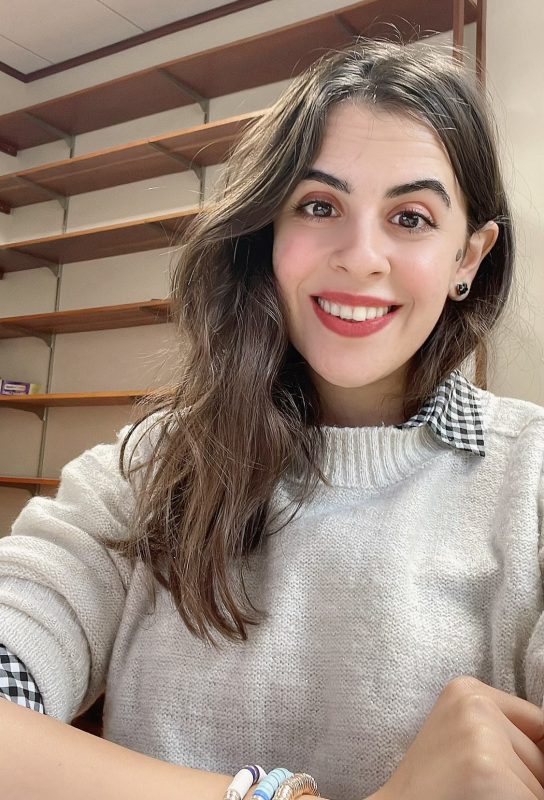
Visiting Assistant Professor of History Josh Morris
Morris is arriving at K from Wayne State University, where he has been a visiting assistant professor at Grand Valley State University since 2021. Elsewhere, he has served St. Clair County Community College, the University of Toledo and Wayne State University as an adjunct faculty member; a graduate teaching assistant at Wayne State and Cal State University Pomona; and a lecturer for the Los Angeles Workers’ Center and the University of California, Irvine.
Morris holds a Ph.D. from Wayne State, a master’s degree from CSU Pomona, and a bachelor’s degree from the University of California, Santa Barbara, all in history. His professional memberships include the American Historical Association, the Organization of American Historians, the Historical Materialism Society for Critical Research in Marxism, the Labor and Working-Class Historical Association and the Historians of American Communism.

Assistant Professor of Anthropology and Sociology Koffi Nomedji
Nomedji holds a Ph.D. in cultural anthropology from Duke University, a master’s degree in economics from Oklahoma State University, and bachelor’s degrees in sociology and economics from the University of Lomé, Togo, West Africa. At Duke, Nomedji taught courses in introductory cultural anthropology, the digital revolution, the anthropology of money, and development and Africa.

Visiting Assistant Professor of Computer Science Nick Polanco
While recently earning a Ph.D. in computer science at Michigan State University, Polanco conducted research in automotive cybersecurity specific to autonomous vehicles. He also was a teaching assistant in artificial intelligence, computer organization and architecture, software engineering, computer systems, discrete structures, mobile applications and development, and database systems.
At K, Polanco will teach courses in introductory computing and programming basics for JavaScript and web development this fall.

Director of African Studies and Assistant Professor of Anthropology Dominique Somda
Somda has arrived at K from the Institute for Humanities in Africa (HUMA) at the University of Cape Town, South Africa, where she was a research fellow. She also has past appointments as traveling faculty with the International Honors Program (IHP) at study abroad and world learning sites in the U.S., Spain, Jordan, India, Nepal, Senegal, South Africa, Brazil, Argentina and Chile; as a visiting assistant professor in the Department of Anthropology at Reed College and the Department of Anthropology and Center for Africana Studies at the University of Pennsylvania; as a visiting scholar in anthropology at the London School of Economics; as a postdoctoral fellow at the Université Paris Nanterre in France; and as a teaching and research fellow at the University of Paris Nanterre.
Somda has a Ph.D. and two master’s degrees in ethnology and comparative sociology from the University of Paris Nanterre, and a master’s and bachelor’s in philosophy from the University Clermont Auvergne.
Somda will lead a course this fall at K titled On Being Human in Africa. The course will examine the experiences of Africans through racialized and gendered existences, their affective relations, their ways of relating to and caring for each other and the land; and explore what it means to think and write about Africa with representations and discourses including fiction, academic writing and social media.

Assistant Professor of Biology Clara Stuligross
Stuligross was a postdoctoral scholar at the University of California, Riverside prior to K. She holds Ph.D. in ecology from the University of California, Davis, and a bachelor’s degree in environmental studies from Earlham College.
Stuligross studies the impacts of environmental stressors on native bee ecology and recently received a federal grant to study the effects of climate change on bees. She also has professional experience as a museum educator at the Carnegie Museum of Natural History in Pittsburgh, where she taught science outreach programs and developed hands-on climate change education lessons. At K this fall, she will teach Biology Explorations.

Visiting Instructor of Chinese Ruyuan Yang
Yang has a master’s degree in teaching Chinese to non-native speakers from the Beijing Language and Culture University, and a bachelor’s degree in teaching Chinese as a second language from Yunnan Normal University in Kunming, China.
Yang previously has taught college-level courses in beginning, intermediate and advanced Chinese at K; basic and intermediate Chinese, and Chinese dance and culture at Western Michigan University; and integrated Chinese and Chinese listening and speaking courses at Beijing Language and Culture University. Yang’s courses this fall include beginning and intermediate Chinese.
